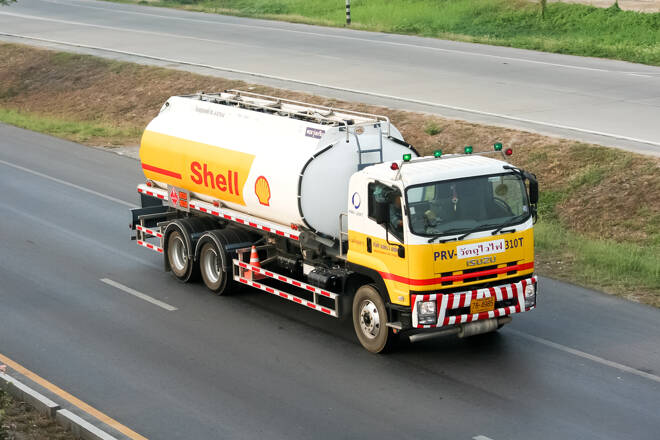Advertisement
Advertisement
Russia Exit Costs Shell $5 Billion
Updated: Apr 7, 2022, 14:14 GMT+00:00
Shell profits hit by multibillion Russian exit
British oil and gas major Shell needs to write off between $4-5 billion due to its exit from Russia. In a Q1 update Shell expects to be hit by a total write-off of around $5 billion on its Russian assets. The main reason is that Shellexpects not to be able to sell its assets at market prices, due to the Russian invasion of the Ukraine. At the end of February 2022 Shell indicated that the total value of its Russian assets was around $3 billion. At present, the total costs could be $1-2 billion higher due to outstanding loans and credit-losses.
The total write-off has put a damper on Q1 financials, which will be reported on May 5. The British oil major’s main assets in Russia are a 27.5% stake in the Sakhalin project, producing oil and gas, and its vast stake in the blocked Nord Stream 2 offshore gas pipeline connecting Russia and Germany offshore Baltic. Other assets include a 50% stake in a Siberian oil producing field, Salim Petroleum (a JV with Gazprom Neft).
Even in a very volatile high crude oil price market, the Russian hit on Shell’s finances will hurt. $4-5 billion is around 80% of the total profit the company reported in Q4 2021, or around 25% of FY2021 profits. Stock markets have already reacted negatively, as shown in the share price of Shell.
The sale of Russian assets constrained
No indications have yet been given to whom Shell expects to sell its assets. At present, possible interested parties will be only Russian entities or possibly Chinese or Indian parties. The interest of Arab investors or companies is still not very high. The last days Abu Dhabi’s second-largest sovereign wealth fund Mubadala already reported to put its investments in Russia on hold. Others will most probably follow this move, even the Saudi sovereign wealth fund PIF and others have become wary. Qatar already has joined the Western anti-Russia alliance even more.
European majors struggling
Shell’s competitors, such as ENI, Total, BP and others, are all struggling with a Russian exit too. BP holds 19.75% stake in the largest Russian oil company Rosneft. French oil major TotalEnergies has stakes in Arctic LNG 2, Yamal LNG (which is already operational), and a 19.4% stake in Novatek. Italian oil major Eni is relatively small in Russia, with 50% stake in the Blue Stream natural gas pipeline to Turkey. A potential hit however can be expected if EU energy sanctions would be there, as Eni’s key operational exposure is due to its contract with Gazprom, the latter supplies 22.47 billion cubic meters of gas.
Operational cash flow under pressure
Shell also has already indicated that it will be facing some other financial headwinds, mainly caused by operational cashflow issues in Q1. The latter are linked to higher costs of oil and gas, which have a negative impact on storage. Shell already stated that it is facing margin-effects on derivates, changes in volumes etc. In its Q1 update Shell indicated a total crude oil production volume of 2 million bpd, while natural gas also contributed around 900,000 boepb (oil equivalent).
In its Q1 report in May, Shell will also be reporting on its renewable energy group. For the first time ever Shell has not put these figures in the Integrated Gas Division. Renewables are expected to show profits of between $100-600 million. The extreme wide margin of profits however still shows some volatility options here.
About the Author
Cyril Widdershovenauthor
Dr. Widdershoven is a veteran Energy market expert and holds several advisory positions at various international think-tanks and global Energy firms.
Advertisement
